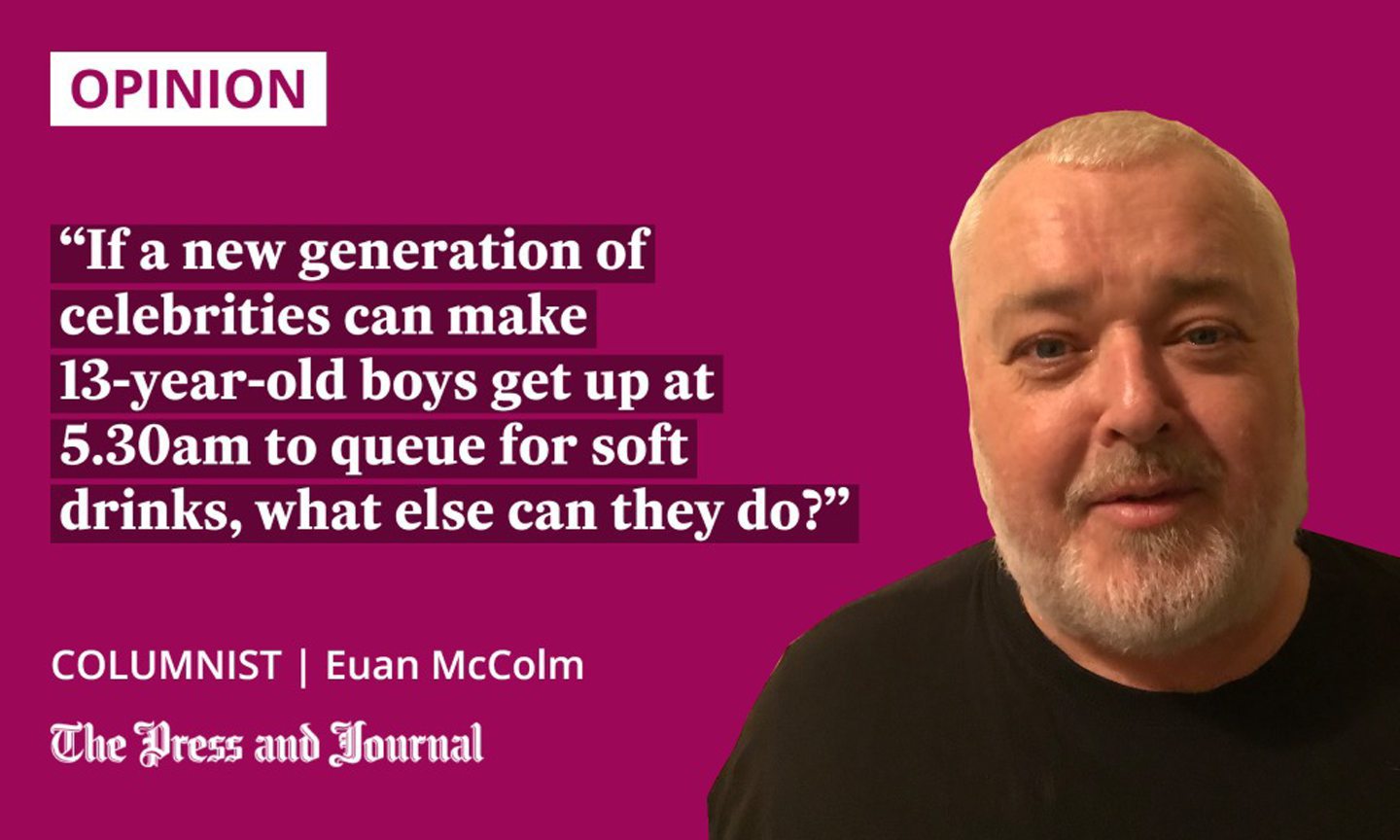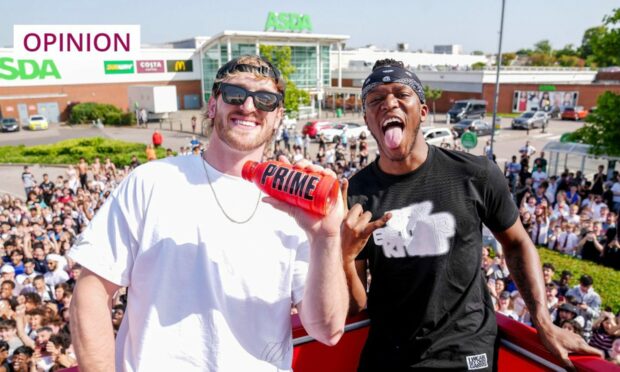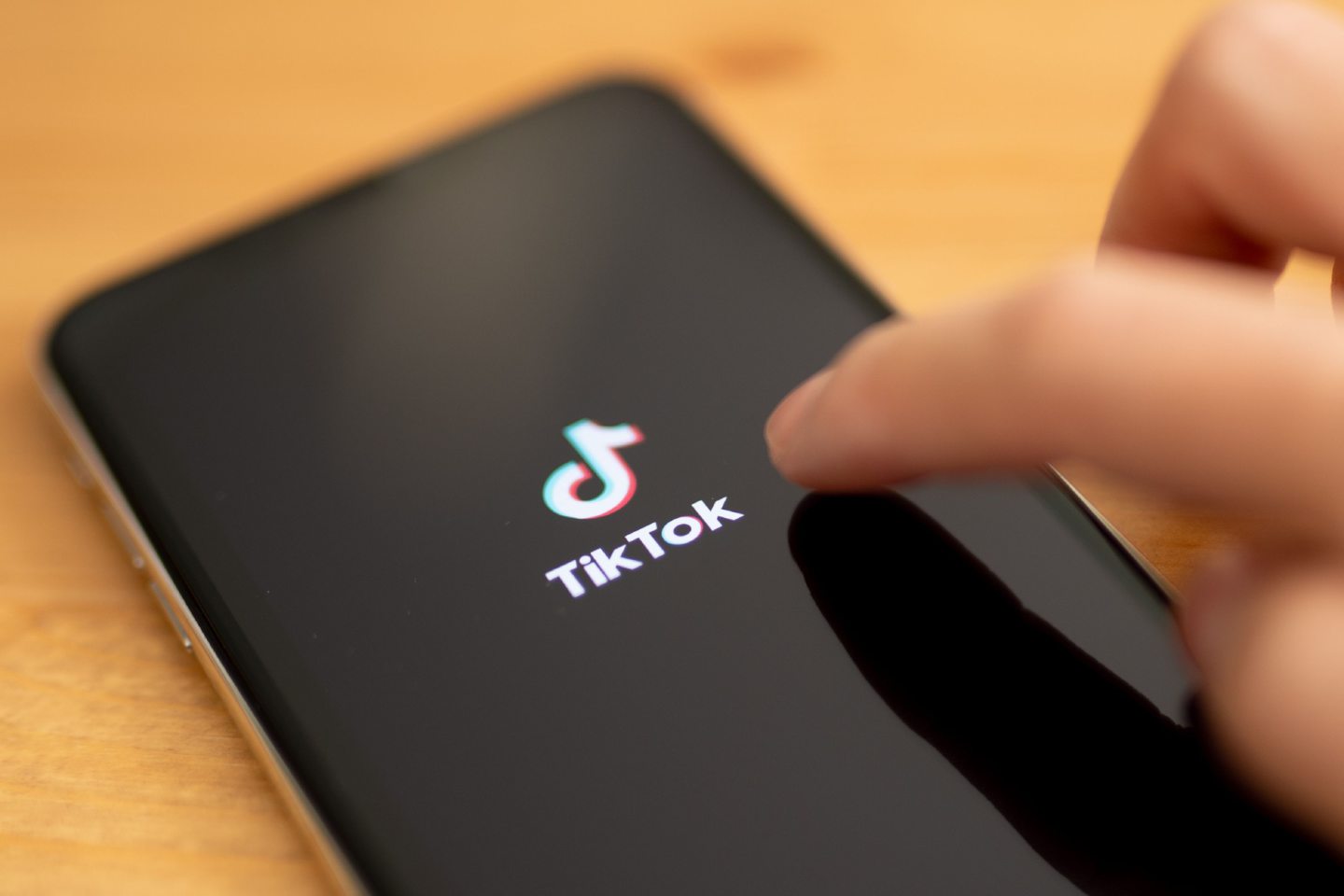The world of internet influencers is alien to many, but parents and carers must take an interest in what their kids are watching, writes Euan McColm.
It’s just after seven o’clock on a cold, wet morning between Christmas and New Year, and I’m standing, stamping my feet for warmth, outside a supermarket in the West End of Glasgow.
Beside me, the 13-year-old is a chattering ball of excitement. He’s been up since 5.30 to ensure we don’t miss out.
We, the 10 people in front of us in this queue, and the dozens who’ll have lined up behind us by the time the doors open at eight, are on a shared mission. We are here to buy bottles of Prime, a rather unremarkable sports drink.

Prime – launched to market last year by online influencers Logan Paul and KSI – is a must-have among a certain group of teenage boys. It’s the cool thing to be seen with.
But supply hasn’t been meeting demand and, so, whenever a shop takes a delivery, the shelves are stripped in seconds, often by sharks who resell the two quid bottles for £20 or more.
On this particular morning, Aldi is limiting sales to three bottles per person. By the time the teenager and I have checked out our haul of six, the stock is gone.
We can’t always know what kids are looking at online
The Prime phenomenon is, I’m sure, baffling to many of my vintage (hurtling towards 53). The world of influencers is alien to us. We do not do TikTok. We don’t care about 60-second makeovers, or wish to master complicated dance routines with our mates.
But the – pretty harmless – obsession with Prime should focus our minds. If a new generation of celebrities, who exist outside of the traditional media most of us consume, can make 13-year-old boys get up at 5.30am to queue for soft drinks, what else can they do?
The answer is troubling. The likes of Logan Paul and KSI might be using their fame to sell bottles of pop, but others have darker intentions.
Andrew Tate is one such example. Currently being detained by Romanian police as part of a human trafficking investigation, Tate built a huge following as a social media star by peddling a doctrine of raw misogyny to impressionable young men.
I wonder how many parents would know whether their sons had fallen under his spell? There is only so much we can do, after all.
The world of online celebrity may seem impenetrable to parents, but if we don’t take an interest, the risks to our children’s safety are grave, indeed
We simply cannot police our children’s every online activity. Sure, we can install internet filters at home, but if we think our kids aren’t looking at troubling content elsewhere, we’re fooling ourselves.
This is why, after the boy and I returned home with our Prime, we had another excruciating – for him – conversation about sexism and pornography and boundaries.
The world of online celebrity may seem impenetrable to parents, but if we don’t take an interest, the risks to our children’s safety are grave, indeed.
Euan McColm is a regular columnist for various Scottish newspapers

